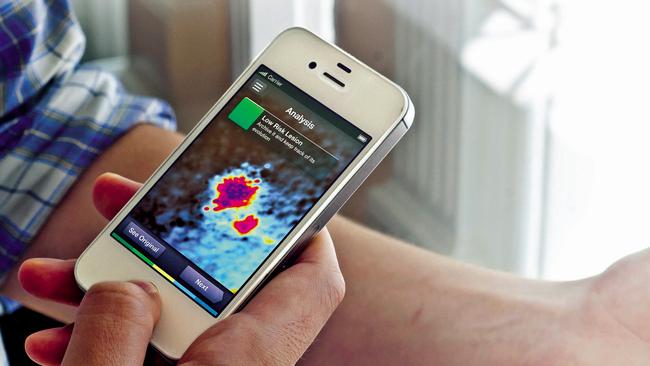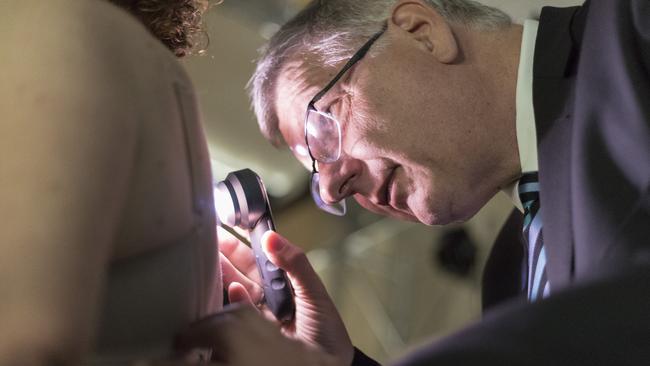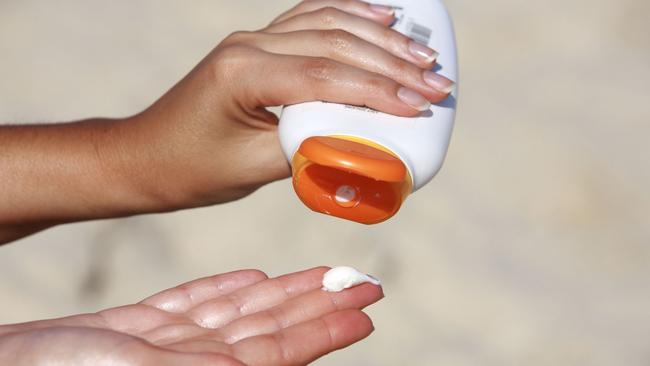Google’s skin-scanning app could save you from skin cancer
Identifying a skin cancer could be as simple as scanning a freckle with your smartphone but researchers warn the system has risks.

SmartDaily
Don't miss out on the headlines from SmartDaily. Followed categories will be added to My News.
What if pointing a smartphone at a freckle could save your life?
This is the idea behind some of the latest advances in skin cancer-detecting technology, which are poised to get a boost as Google prepares to enter the market.
The tech giant recently revealed plans to roll out an artificially intelligent, medically approved search engine for your skin that could name a rash or issue a warning about a suspicious mole.
But while experts have largely welcomed the tech giant’s move as a way to raise awareness and encourage people to seek medical help, they also warn there could be unintended side effects for patients and doctors who rely on artificial intelligence for a diagnosis.
Google recently unveiled plans to enter the skin-scanning market at its I/O developers conference, with the company’s chief health officer Dr Karen De Salvo revealing it had spent three years developing the solution.
She said Google turned its sights on dermatological problems in response to almost 10 billion Google searches about skin, nail and hair conditions every year and a shortage of specialists in the field.

Google’s “AI-powered dermatology assist tool” will be an addition to its search engine, available through the web browser on your smartphone, and will ask users to snap and upload three photos of a mole, freckle, lesion or rash.
Dr De Salvo said it would then compare the photos to a database of skin issues and deliver guidance.
“It seems simple but developing an effective AI model for dermatology requires the capability to interpret millions and millions of images inclusive of a full range of different skin types and tones,” she said.
“We’re working to make it available to Google search users in the EU as early as the end of this year.”
There’s no word yet when the tool will be submitted for approval by regulators in Australia and the US.
But when Google does launch its skin tool Down Under, it will join a growing number of apps that scan users’ skin for signs of cancer and other issues, such as SkinVision, Miiskin and Firstcheck.
Solbari CEO Johanna Young said her sun-safe clothing company recognised the potential of these apps and last year teamed with SkinVision to sell annual passes to the service.

Ms Young, who gave up her job in finance to focus on skin cancer prevention, said the partnership had already proven beneficial, with the most serious form of skin cancer picked up with the app.
“We’ve got hundreds of people who have used the skin-check app so far and there have been some serious melanomas identified,” she said.
“The first time we had someone who had a melanoma detected with the skin app that was a huge moment for us.”
More than 16,000 cases of melanoma were recorded in Australia last year, according to The Australian Institute of Health and Welfare, making it the third most common form cancer. More than 1300 Aussies died from the disease in 2020.
Ms Young said the statistics highlighted the need for Aussies to get regular skin checks, even during the Covid-19 pandemic.
“Numbers do show the number of skin checks with GPs is down considerably and that is leading to people not treating their skin in time,” she said.
“Ninety-five per cent of melanomas can be treated successfully if treated early enough.”
But experts warn that artificially intelligent skin-scanning technology is early in its development and cannot replace visiting a medical professional.
A study by researchers at the Universities of Birmingham and Nottingham found popular skin-scanning apps failed to identify a number of serious skin cancers, including melanomas.

But Professor H. Peter Soyer, director of the University of Queensland’s Diamantina Institute Dermatology Research Centre, said the use of machine learning and artificial intelligence in identifying skin cancer was a “complex issue” with great promise and unresolved questions.
“There’s a lot of discussion about how to harness the potential of AI. It has huge potential for the patients, the wider community, for doctors and for health,” he said.
“Sometimes doing things a little bit slower is better than doing them too fast.”
Dr Soyer, who is also an Australasian College of Dermatologists fellow, said some of the risks of skin-scanning apps included a failure to identify some skin cancers, particularly for patients with darker skin due to limited samples, doctors relying on it too much, and “over-diagnosis” creating unnecessary anxiety for users.
“I am a strong supporter for access to health information and this will empower people in the wider community so I think this is good,” he said.
“The problem is this unfiltered information may also create some anxiety or knowledge that might make their interaction with doctors more complicated.”
Dr Soyer said similar technology was currently being investigated in a three-year study using 3D body photography by Australian universities in the hope it could be finetuned and assist cancer diagnoses in future.
“At the end of the day we will have to embrace it and AI will not replace doctors, it will make doctors better,” he said.
“It’s not AI versus humans but how AI works with humans.”




